What do 1989, Moonrise Kingdom, and Gattaca have in common?
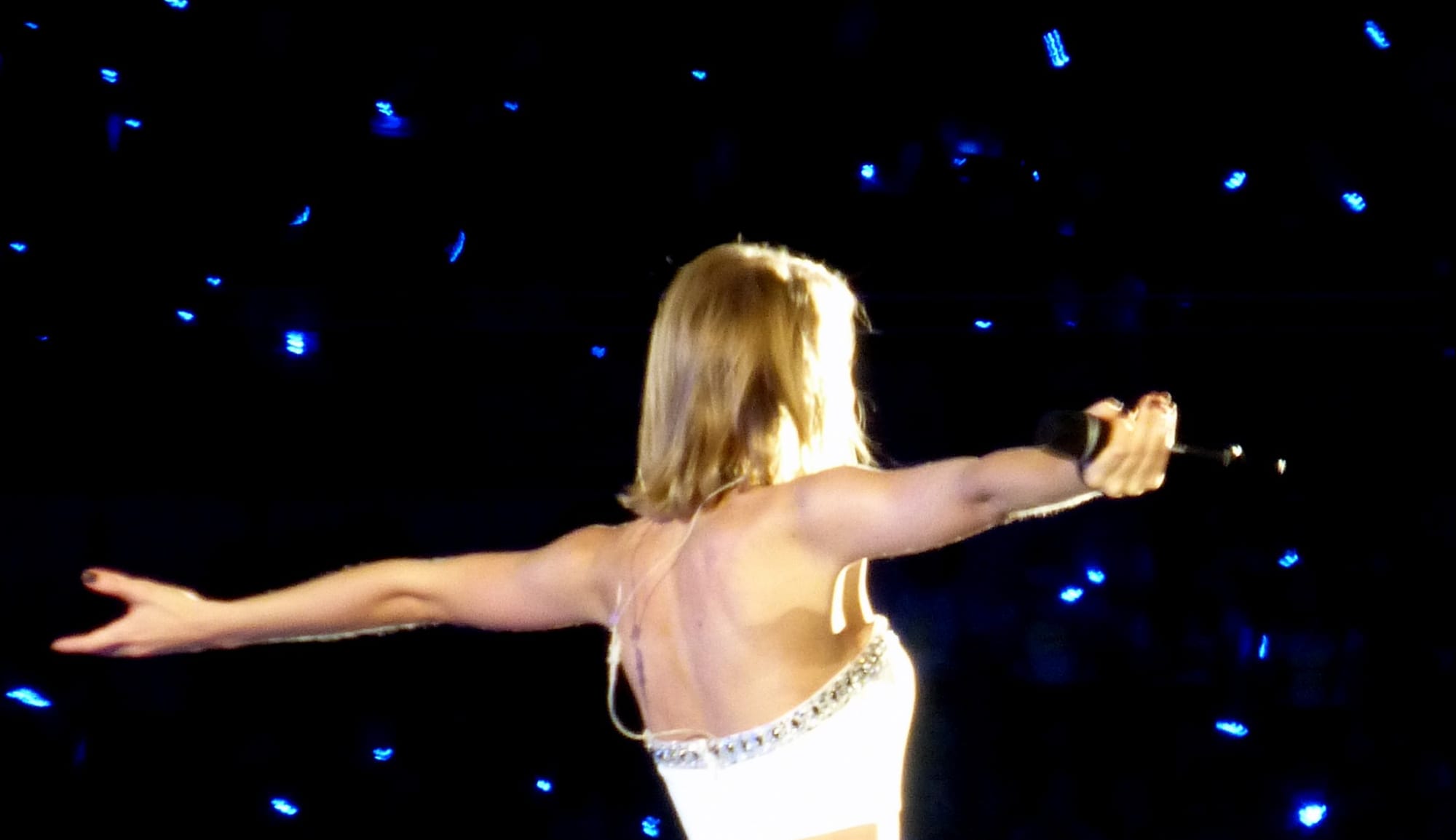
Imagine this if you will: I've started hosting a regular evening discussion group where all of us who love to look closer gather and watch films, or listen to albums, and then stay up late discussing them. Imagine I give each one of you an opportunity to choose which album or movie we're going to give our close attention. What movie or music would you choose? And why?
I posed this question to the Looking Closer Specialists, and here are their recommendations for this imaginary discussion group. Some of them wrote out their recommendations for you, and some addressed them directly to me.
You are free to take their suggestions and start your own group. We'll be with you in spirit. You could even call it "Looking Closer" if you wanted to...
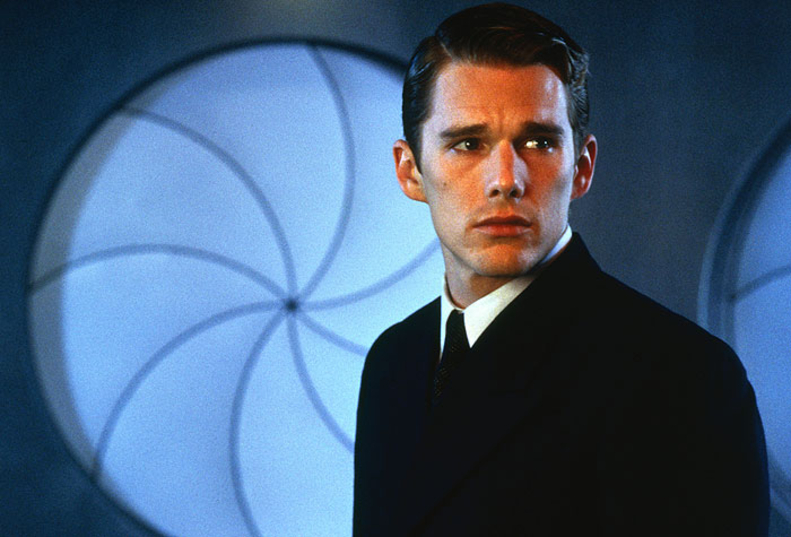
Bob Denst retired from the Tucson Fire Department after a full career and is currently experiencing Life 2.0 as a student in the Seattle Pacific University MFA program for Creative Writing. He recommends:
Gattaca.

Peggy Harris has written about film and theology for Cokesbury, the educational imprint of Abingdon Press. She recommends one of my recent favorites:
Moonrise KingdomParent TrapCool Hand LukeThe Love BugMidnight CowboyThe GraduateThrough a Screen DarklyMoonrise Kingdom
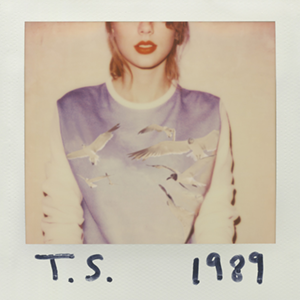
Winston Chow has been singing since he was 5, but never formally learned to read or play music. When he's not enduring the commute to software engineering work in Silicon Valley, he helps college kids learn to sing in the church choir. He recommends:
At the very least, compare/contrast the album tracks — "Blank Space", "Out of the Woods", and "Shake It Off". I know some may roll their eyes and ask, "Why that fluffy pop-princess Taylor Swift?", but I've been inexplicably drawn to listen to Swift's 1989 much more than I thought I would. When Ryan Adams released his cover album of "1989", I figured out why.
(Thanks, Jeffrey Overstreet, for posting Adams's cover of "Shake It Off"!)

Joseph Susanka has been doing development work for institutions of Catholic higher education since graduating just such an institution in 1999. A grateful resident of Wyoming, he spends his free time exploring the beautiful Wind River Mountains, keeping track of his (currently) seven sons, being amazed by his (currently) lone daughter, and thanking his lucky stars for Netflix. He picks another of my recent favorites:
First, because it seems only appropriate for the unveiling of the new “Looking Closer” site that I select the transformative viewing experience for which Jeffrey was most responsible. I’d seen references to Kiarostami’s film floating around for quite a while without thinking much of it, but when his atypical review – OK, it wasn’t really a review; more of a reflection — appeared in Image, I was inspired to give it a watch, and it was as thoughtful, provoking, and spectacular as he suggested.
Second, it seems wise to pick a film that is not only sure to inspire discussion – this one will, without a doubt – but also one that has enough complexity, nuance, and ambiguity to reward a close examination by a group of thoughtful and like-minded folks. (Also, the acting is amazing. I could watch Binoche and Shimell in this film forever and never grow tired.)
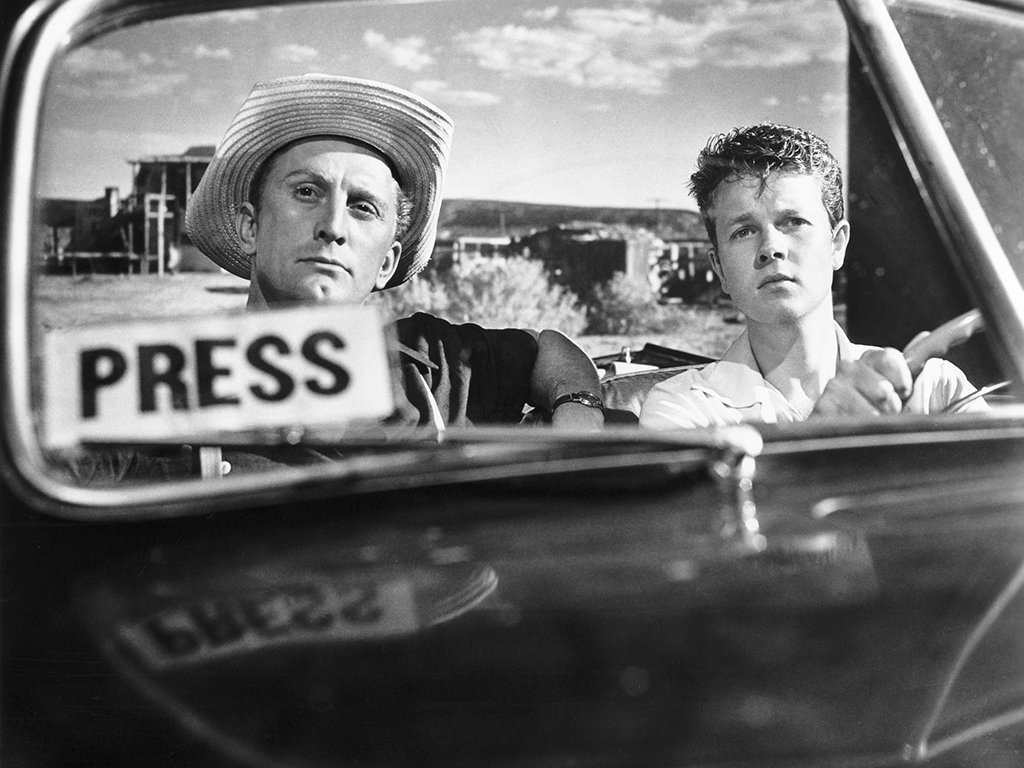
Joshua Wilson is a singer, teacher, husband, and father of five. He occasionally blogs on films at fforfilms.wordpress.com. He makes a surprising choice:
In this film, Wilder presents a bleak picture of our contemporary media culture. A man who is tragically caught half buried in a collapsed cave provides the scoop of a lifetime for Kirk Douglas's bottom feeding newspaperman. He intends to capitalize on the story for profit and career advancement, and sets the stage for a literal media circus, complete with tents and Ferris wheels.
But as easy as it is to criticize the disgustingly self serving and corrupt actions of the newspaperman, Wilder's satire is directed just as much towards us who so frequently use the tragedy of others as a consumable form of entertainment. When the resolution comes, the crowd picks up and moves on, taking with them their "I was there" stories, and leaving only their camping garbage, caring little for the hurting people who remained behind.
It's been described as misanthropic, and it does veer towards melodrama near the climax, but I feel that some topics require an extreme depiction in order to break through our callousness and shake us up a bit into paying attention. This is a film that has only grown in relevance proportionally to the growth of the influence of media in our daily, even hourly experience.
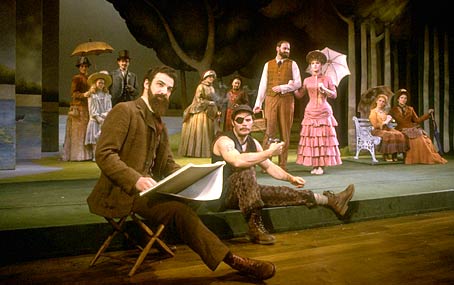
Evan Cogswell is an organist, composer and film enthusiast who occasionally blogs about film at https://catholiccinephile.wordpress.com/ His recommendation is the most obscure of them all:
DVD recordingSunday in the Park with George
The musical doesn't tell a traditional story (which makes many people bored quickly); it's comprised of a series of fictitious vignettes about George Seraut as he paints his masterpiece Sunday Afternoon on the Island of la Grande Jatte. More interested in his work than anything else, Seraut is so committed to his vision that he tries to use his art as a substitute for relationships. Jumping forward 100 years (with a very funny song about modeling from the characters in the painting), act 2 is about Seraut's fictitious great-grandson who believes good art = $$, and has no commitment to his own vision or creating a good work of art. The theme of human connections runs through many of Sondheim's musicals, but this is his most optimistic, because art does make life worth living, healing and connecting people from different times and cultures.
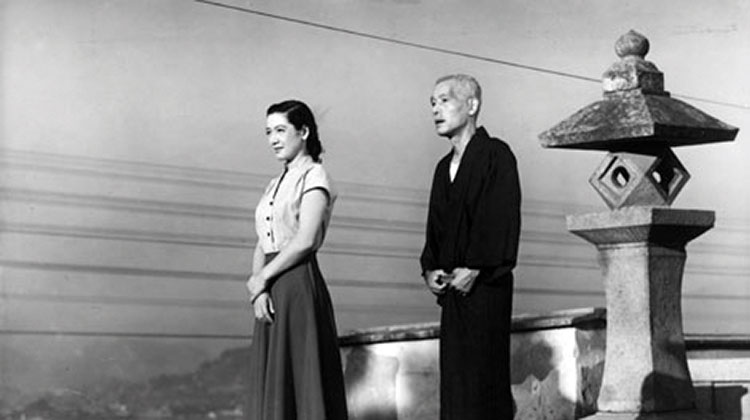
Levi Douma recently quit his studies at the conservatory in Utrecht, Holland and became a practitioner of transcendental meditation. He chooses:
In a book called Through a Screen Darkly, there is a part where the writer complains about how few people these days take time to endure a so-called slow movie like Ozu’s Tokyo Story. Childlike me felt up for a challenge. I would watch the whole thing without falling asleep, just to try to get better focus. That “not-trying-to-like-it” attitude would prove most effective, because I had in the doing opened myself to the voice of the art, and all other inside voices and thoughts were just quietly expecting.
I was deeply moved by the film, especially the character of Setsuko O Hara (Noriko) made a strong impression. Her kindness overwhelmed me. “That’s the person I want to be!” I thought. She made conservative-like virtues heartfelt and beautiful. Yasujiro Ozu shows quiet admiration for things many people think are boring; he takes you to that subtle level where the quiet virtues are. He shows us how valuable family bonds are, how we must cherish them.
I realise, although strong it was, this experience is only the beginning of grasping the deeply felt kindnesses one can give and receive in a family. Tokyo Story was for me a revelation, a first step into a healthier direction. I need to appreciate and understand Ozu’s movies more, that’s why I picked this movie to look closer.
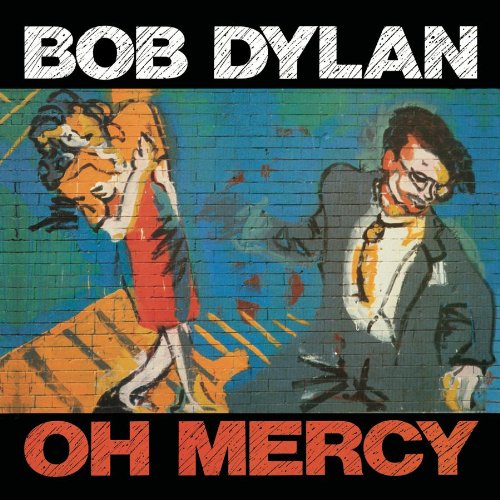
Daniel Melvill Jones is spending his early 20s working for a technology company while he anxiously waits for the right time to return to school. (Trusting the Grand Weaver's plan is hard but fruitful.) In the meantime he is serving his local church, reading an ever growing stack of volumes, and posting on occasion at danielmelvilljones.com. I'm honored that Daniel would cast me as Bilbo in the scenario that he shares here (although I hope he means Tolkien's Bilbo, not Peter Jackson's):
Yet having learned so much in this company, I seek further understanding. Already I've grown from our feasts together, but my appetite remains unquenched. Specifically, I would like to better understand one who has been a minstrel, poet, prophet, and storyteller to several generations. I'd like a primer on Bob Dylan. Which album should we dwell on? I say we choose Jeffrey's favourite, which is, well, let's look... ah, I've found it: Oh Mercy.
